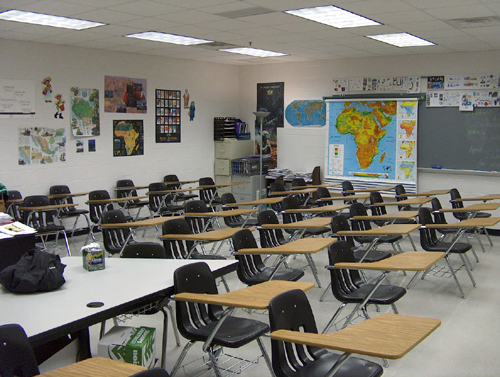How to Knock Down Barriers That Get in the Way of Students of Color and Low-Income Students
Education professionals discuss the challenges students face in Southeast Michigan, and the institutions attempting to bridge those opportunity gaps.

Low-income students and students of color disproportionately face educational barriers, which were only exacerbated as the pandemic forced children to adapt to virtual learning. Education Trust-Midwest is attempting to provide disinvested schools with the tools they need, while also recognizing the schools in Southeast Michigan that have been working to overcome these challenges.
“We need a far better, well-prepared, diverse teaching force. And we need to support teachers … Teachers need support resources. Teachers need more training than ever before. Teachers need to be paid more.” -Dr. Elizabeth Moje, University of Michigan College of Education
Listen: Overcoming educational barriers in Michigan’s schools
Guests
Dr. Tabitha Bentley is director of policy for Education Trust-Midwest, an organization dedicated to improving education for students in Michigan. She says virtual learning highlighted the inequities that low-income students face, particularly access to technology. “This pandemic has added a challenge. And it has had a disproportionate impact on students of color and students from low-income backgrounds.” Bentley says schools help their students overcome these challenges when, “they really believe that their students can reach high levels, which I know sounds simple, but it’s a really important part.”
James Kinsey is principal of Thomas Jefferson Elementary School in South Redford. He says his school was able to provide laptops and internet access to students who needed them during the pandemic. “The gaps are obvious … We did the best we can. Families did the best they could.” Kinsey says schools that serve their students well are, “intentional about progress and growth … If they had the resources, they’re very sure they could do more for their students and for their families.”
Dr. Elizabeth Moje is dean of the University of Michigan School of Education. She says equitable resource distribution means accounting for opportunity gaps rather than treating every student equally. “If we’re living in places where internet access has not been provided … that means that the children in those areas … aren’t able to use those tools.” Moje says to provide better opportunities for students to learn, “We need a far better, well-prepared, diverse teaching force. And we need to support teachers … Teachers need support resources. Teachers need more training than ever before. Teachers need to be paid more.”
Trusted, accurate, up-to-date.
WDET strives to make our journalism accessible to everyone. As a public media institution, we maintain our journalistic integrity through independent support from readers like you. If you value WDET as your source of news, music and conversation, please make a gift today.
